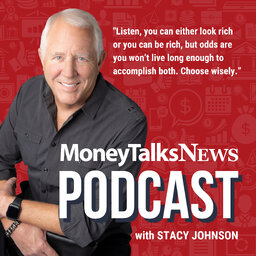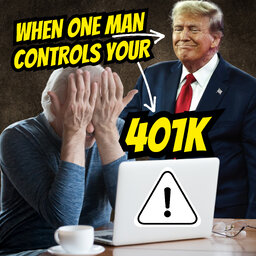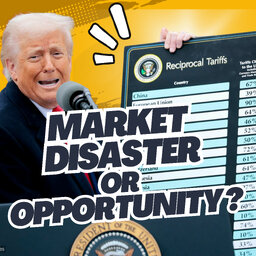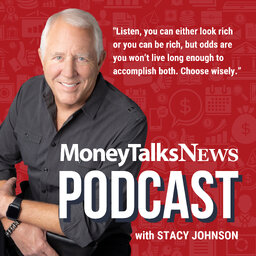Love Him or Hate Him, Trump Is Telling You Where to Invest
Markets are moving. Trump is talking. Investment opportunities are emerging.
The president's policies could reshape global financial markets in unexpected ways.
Will emerging markets surge? Can China stocks shine? How will tariffs impact international trade?
We're diving deep into investment strategies during Trump's presidency. It's information you need to know. So tune in and take notes.
It could make you wealthier.
Chapter Markers:
0:00 - Introduction and Investment Background
3:30 - Trump's Policy Impact on Markets
8:45 - Sector-Specific Investment Opportunities
15:20 - Risk Management Strategies
22:40 - International Market Opportunities
27:15 - Personal Investment Examples
31:00 - Closing Thoughts and Recommendations
Make new friends! Join the MTN Facebook Retirement Group
Click to watch: https://youtu.be/T7qjyP6uyeE
Title with URL link insert
Add "Money Talks News: The Podcast" to your favorite player!
- MTN | Youtube
- MTN | Apple Podcasts
- MTN | Spotify
Love growing your wealth? You'll enjoy these courses.
- Take our course The Only Retirement Guide You'll Ever Need
- Take our course Money Made Simple
Summary:
Former hedge fund managers from "The Big Short" are betting on emerging markets as Trump's potential return to office reshapes investment landscapes. These savvy investors, who made millions predicting the 2008 housing crisis, are now eyeing opportunities in Brazil and China, where stocks trade at more reasonable valuations compared to U.S. tech giants.
The podcast discusses Trump's clear messaging about tariffs, deregulation, and America-first policies, which could benefit specific sectors like industrials, financials, and energy. Host Stacy Johnson suggests following these signals while maintaining a balanced portfolio approach.
Notable insights include the potential risks of overvalued U.S. tech stocks trading at 40 times earnings, while companies like Alibaba trade at just 11 times earnings. Johnson shares his personal investment strategy, including taking profits on Nvidia and exploring opportunities in undervalued markets.
The discussion emphasizes the importance of risk management, diversification, and avoiding emotional investment decisions. Investors are advised to consider sector-specific ETFs for targeted exposure while maintaining core positions in broad market indices.
Stocks cited in show:
Equal Weighted ETFS
Alibaba
Brics ETF
Defiance EFT ex-Magnificent 7: XMAG
Sector SPDR ETF:
XLI
XLF
XLE
XLB
We discuss specific investments in this show, don't take them as recommendations, because they're not. Before you invest in anything, do your own research, and make your own decisions.
In 1 playlist(s)
Money Talks News: The Podcast
Welcome to Money Talks News: The Podcast, a podcast devoted to everything money: how to get it, how …Social links
Follow podcast
Recent clips

Recession or Rally? Why Are Markets Rising Despite Trump's Tariffs?
25:32

Is Trump Really a “Stable Genius”? Don’t Bet Your Retirement On It
20:38

I've Been Investing for 40+ Years: Here's What to Do When the Market Is Tanking
05:19
 Money Talks News: The Podcast
Money Talks News: The Podcast